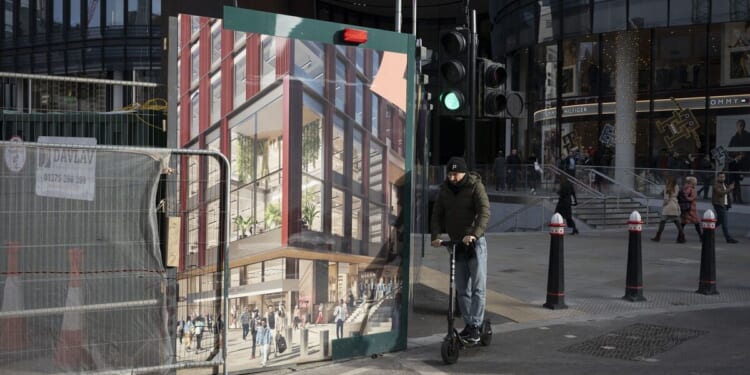A very busy road in Liverpool could be up for a huge redesign – including going underground – to help better connect the city centre with a £1 billion waterfront development. City and regional bosses have expressed excitement about the ongoing plans for a £1bn skyscraper development plan to commence on the edge of Liverpool city centre.
The project would mean nearly 3,000 homes and 400 hotel rooms would be built on land known as the King Edward Triangle on a site based on Gibraltar Row, close to The Strand – the waterfront dual-carriageway that thousands of drivers pass through every single day.
The evolving plans come via a partnership between Beetham and the TJ Morris group, which operates the Home Bargains empire. and could include a new 25,000 sq ft arena, the city’s first AA five-star hotel, and more commercial business space.
Speaking at the launch of the Liverpool City Region 10-year growth plan at the University of Liverpool, Metro Mayor Steve Rotheram confirmed the ambition could be to change The Strand, and make it so it would go underground and underneath the new King Edward development.
Explaining this idea, he told the ECHO: “What we (the combined authority) will provide is the means for the others to do some of these things. If for instance, the ambition is that we can take the Strand under and then have it appear somewhere else, that will need us the strategic authority working with the city council.
“The ambition is, that if we build the first bit of it, is then somehow how to connect it. At the moment Leeds Street and The Strand are in the way.
He added: “So wouldn’t it be brilliant if we could get over that as a hurdle and then you could connect the whole of that corridor?”
Speaking at an event last year, Liverpool Council’s head of planning Samantha Campbell brought up the transformational idea.
In comments reported by Place North West, Ms Campbell said that sinking The Strand was a “radical intervention” that could create a seamless connection between the city centre and the King Edward Triangle and beyond to the rest of the northern docks.
The King Edward plans continue to move forward as a planning application was submitted in June for a 28-storey, 255-unit building to form part of the development. It is understood that it will be ruled on this autumn.
















